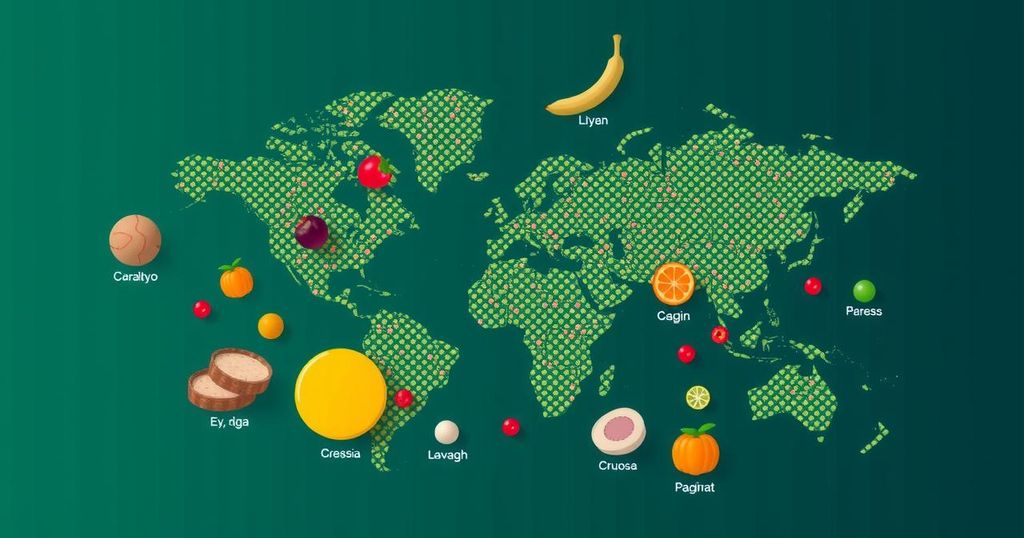COP29: Assessing the Success of Food Pledges Post-COP28 vs. Future Challenges

World leaders assemble for COP29 in Baku, emphasizing food systems’ role in emissions. COP28 initiated landmark agreements, yet progress on commitments has been sluggish. Only 40 out of 160 countries are on track to revise Nationally Determined Contributions ahead of COP30. Critics raise concerns about the UN FAO’s roadmap for food systems. The Alliance of Champions demonstrates potential pathways for transformative agricultural practices, signaling hope for COP29 to catalyze meaningful change.
This week, leaders from around the world are convening in Baku, Azerbaijan, for COP29, the 29th annual United Nations Climate Change Conference. Following the significant progress made at COP28, where over 160 countries signed the UAE Declaration on Sustainable Agriculture and Resilient Food Systems, stakeholders are assessing the potential for further advancements in addressing food systems’ contributions to greenhouse gas emissions. Despite these breakthroughs, concerns remain regarding the implementation of pledges and the urgency of reforming global food practices. COP28 marked a turning point by bringing food systems into focus, highlighting their crucial role in driving global emissions—approximately one-third of the total, predominantly from meat production. Although numerous nations agreed to incorporate food-related strategies into their Nationally Determined Contributions (NDCs), only about 40 countries are currently on track to revise their plans before COP30 in Brazil next year, leaving a vast majority yet to demonstrate progress. Edward Davey, a senior advisor at The Food and Land Use Coalition, expresses both pride in COP28’s achievements and anxiety regarding post-conference follow-through: “We do very much need to deliver on that declaration.” The UK’s commitment to a revised NDC illustrates the critical need for dietary shifts to meet established climate goals; the same sentiment is echoed across Global North countries in recognition of the link between diet and emissions. At COP28, substantial financial commitments were made towards food system transformations, with over $7 billion pledged from various organizations, including the Bezos Earth Fund. However, the roadmap designed by the UN’s Food and Agriculture Organization (FAO) to tackle food-related emissions has met challenges, particularly concerning the clarity and implementation of its guidelines. Criticisms surrounding the Pathways report highlight the importance of accuracy and detail in reporting, as the FAO grapples with significant recommendations for sustainable productivity in the Global South. Conversely, the Alliance of Champions for Food Systems Transformation—a coalition initiated at COP28—has taken notable steps forward, helping countries like Sierra Leone reform its food system through strategic domestic agricultural programs. With a collective approach, countries hope to address food-related emissions collaboratively, ensuring that environmental responsibilities are not disproportionately shifted between Global North and South nations. The upcoming conference in Azerbaijan presents a crucial opportunity for global leaders to establish a clear path forward and commit to substantive actions that can mitigate the environmental impact of food systems. Only time will tell if COP29 can live up to the promise of addressing these pressing issues effectively.
The increasing urgency to address climate change has highlighted the significant role of food systems in global greenhouse gas emissions, accounting for approximately one-third of total emissions, particularly through livestock production. The COP28 conference introduced groundbreaking commitments, notably the UAE Declaration on Sustainable Agriculture, aimed at integrating food systems into national climate agendas. However, challenges remain, including the need for collective action among participating nations to comply with their pledges and foster meaningful change within their agricultural practices. This article assesses both the achievements and ongoing struggles in reforming food systems as world leaders gather for COP29.
In summary, the global response to food systems’ impact on climate change reached a critical juncture at COP28, yet the progress observed remains insufficient to meet future climate goals. The dedication of over 160 countries to sign important declarations must translate into tangible actions leading up to COP30 in Brazil. The complexities involved in changing dietary patterns and agricultural practices underscore the need for collaborative, strategically-coordinated efforts among all nations. Perhaps COP29 in Azerbaijan may prove to be the decisive moment to galvanize these commitments into lasting reforms for a sustainable future.
Original Source: sentientmedia.org






